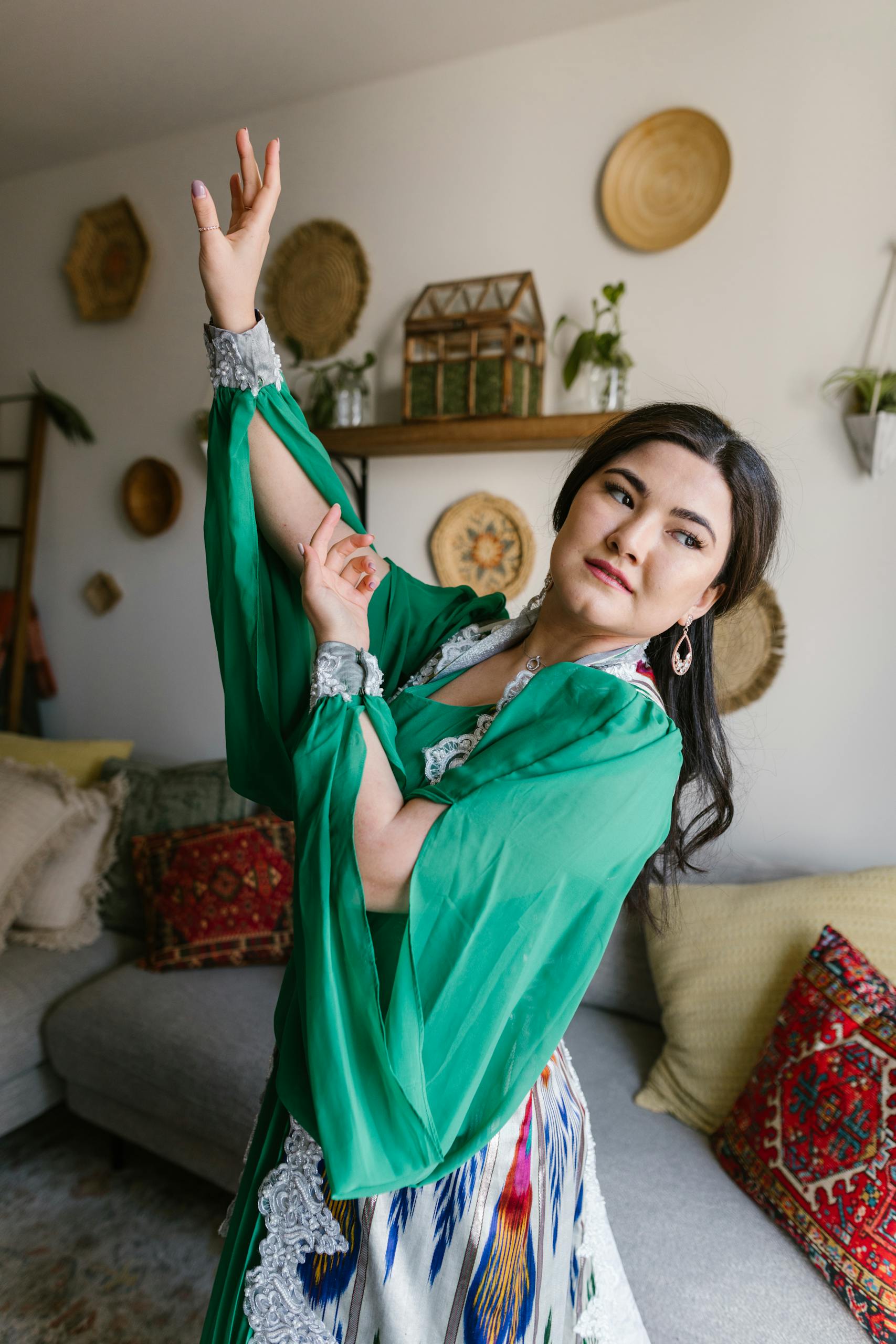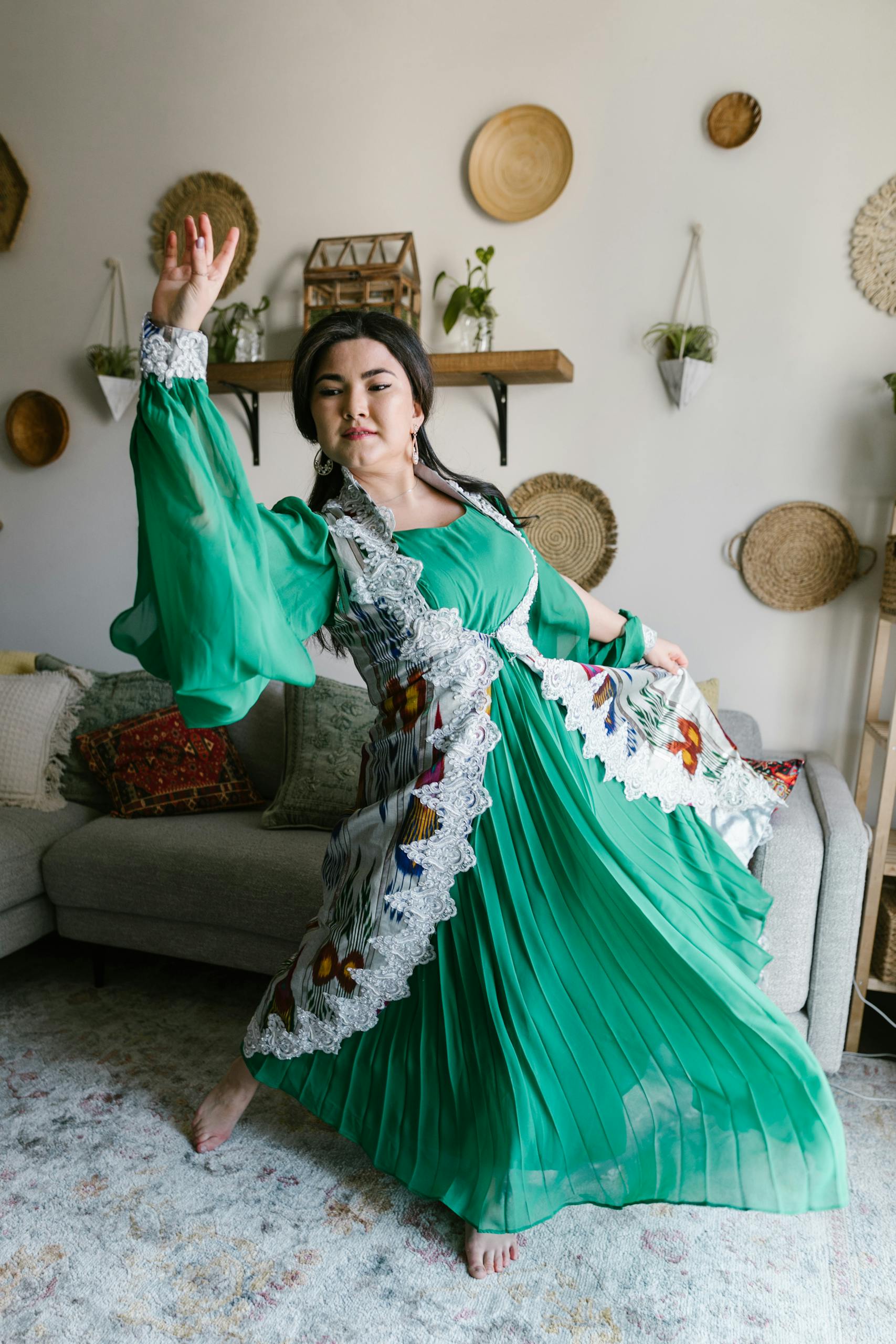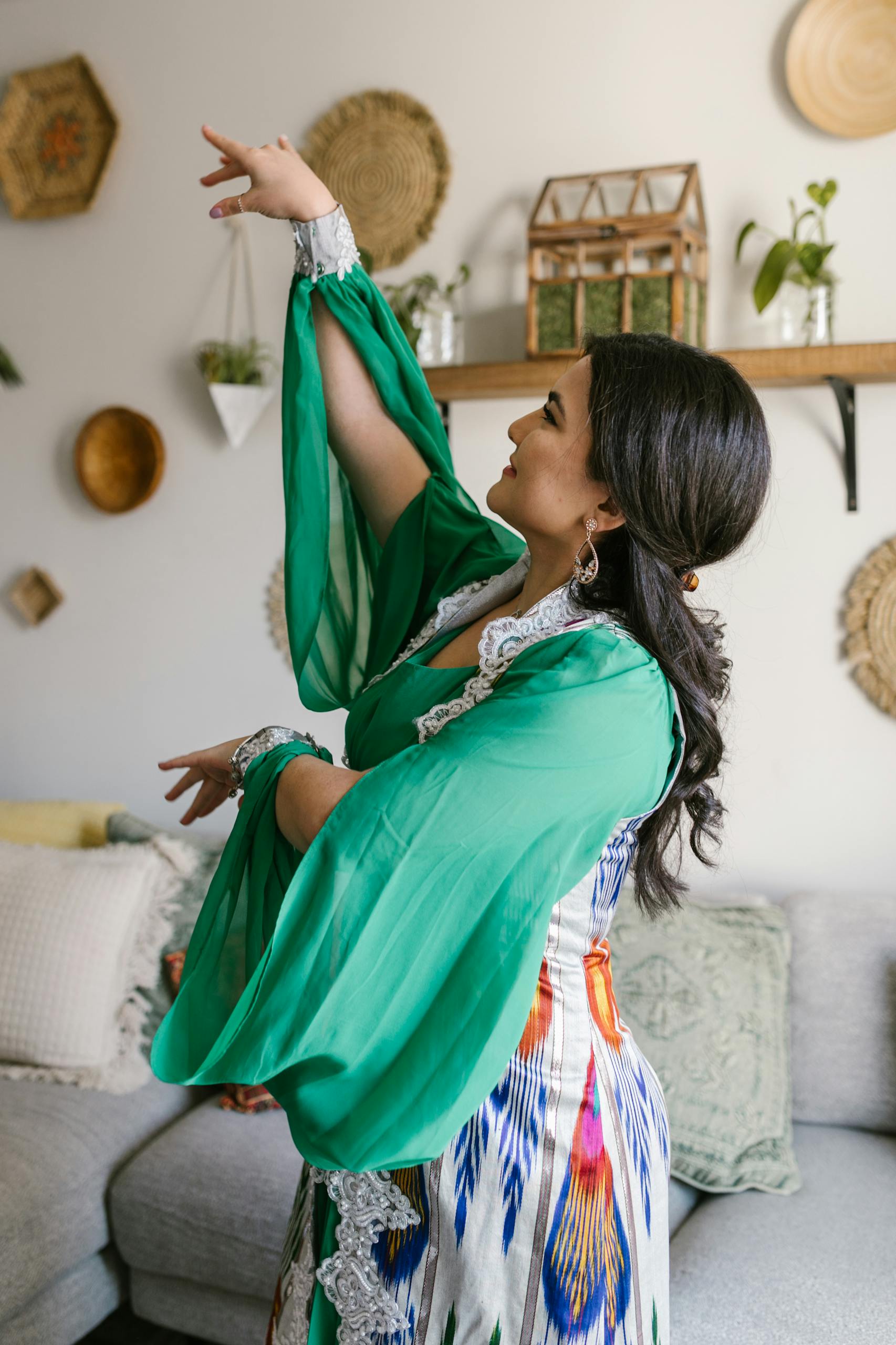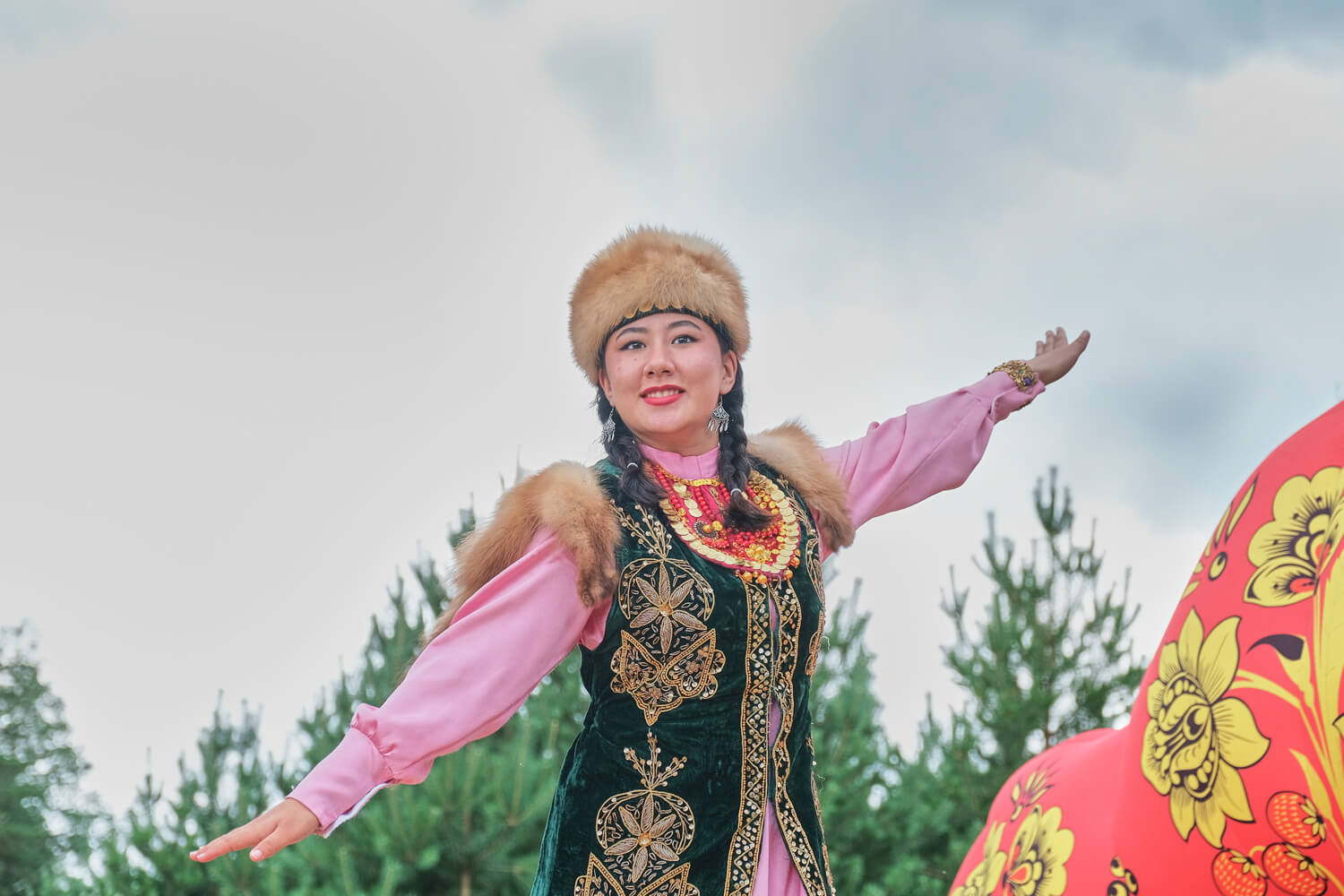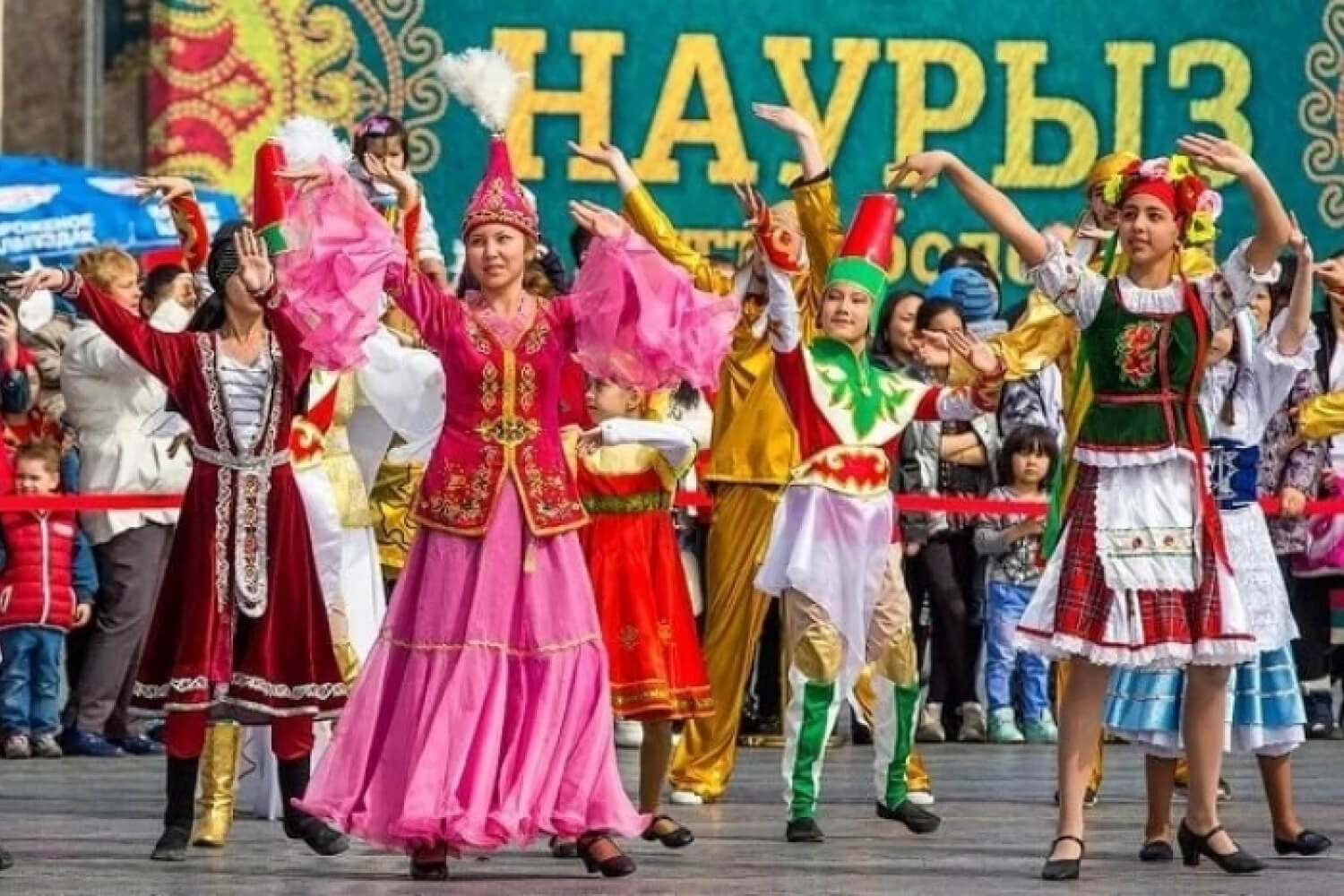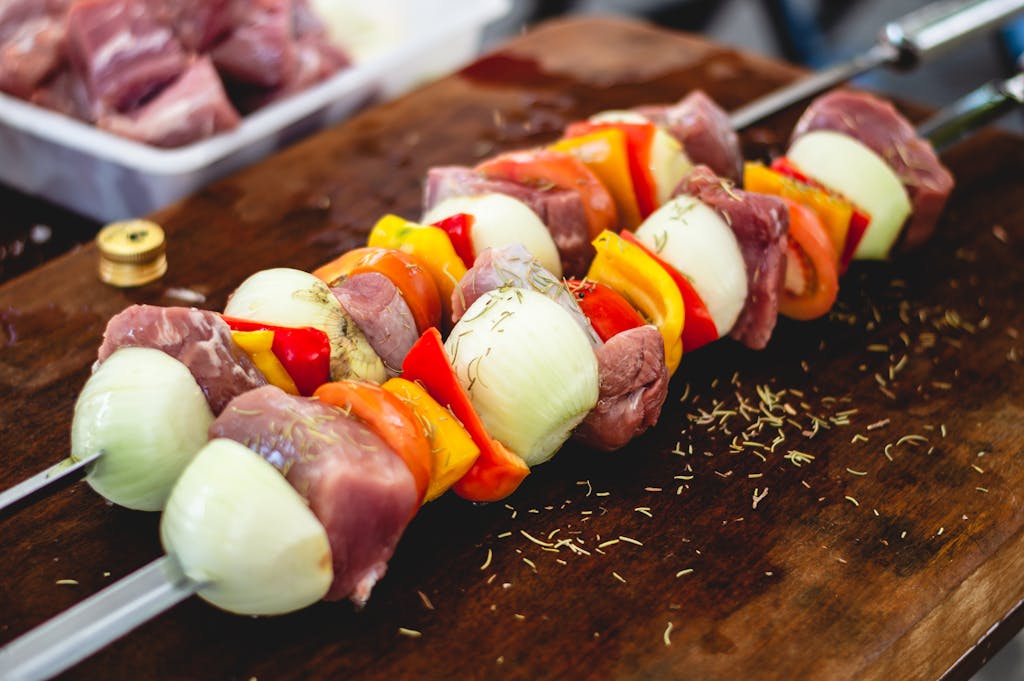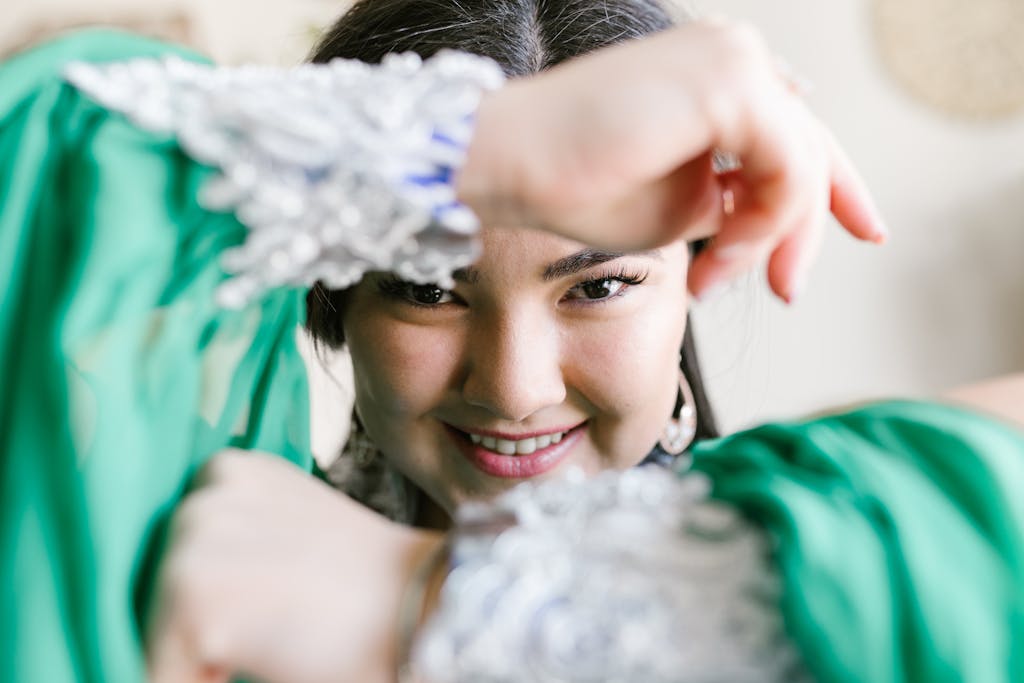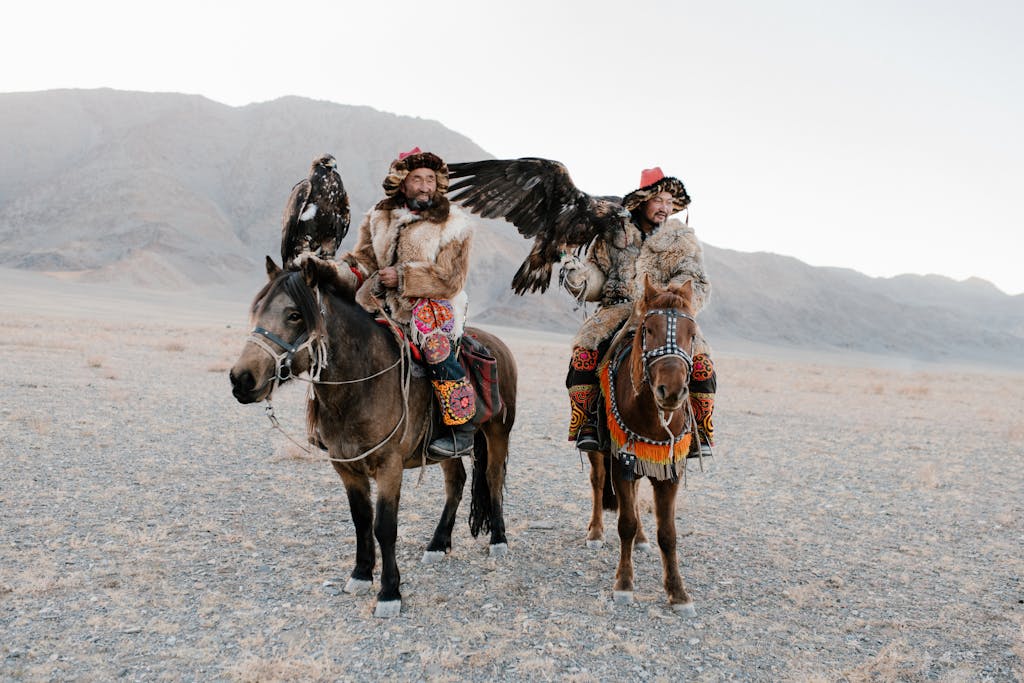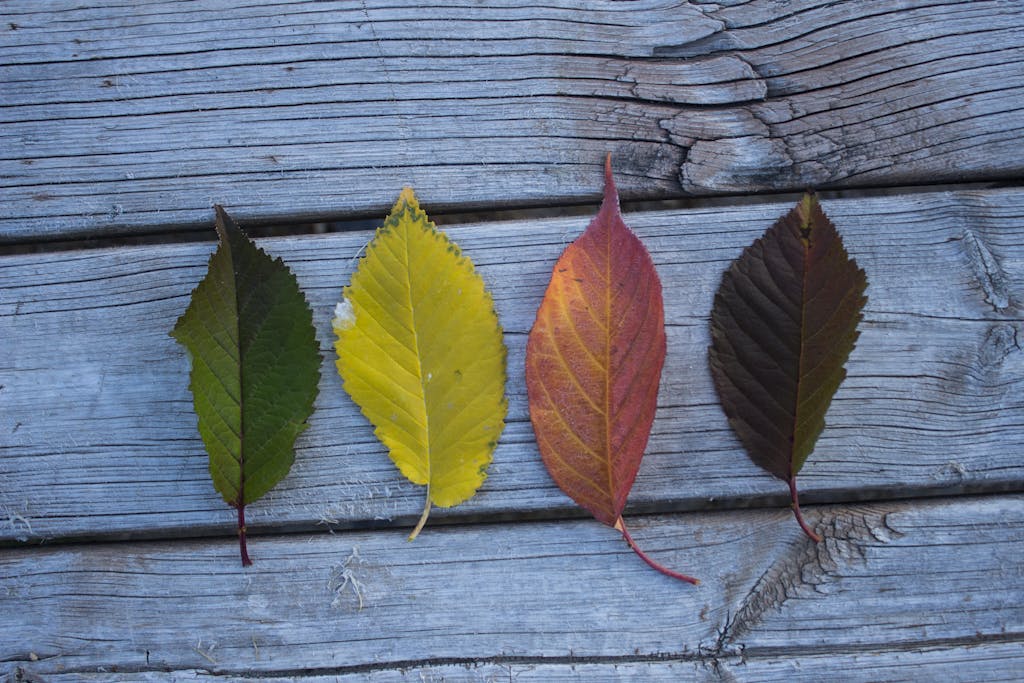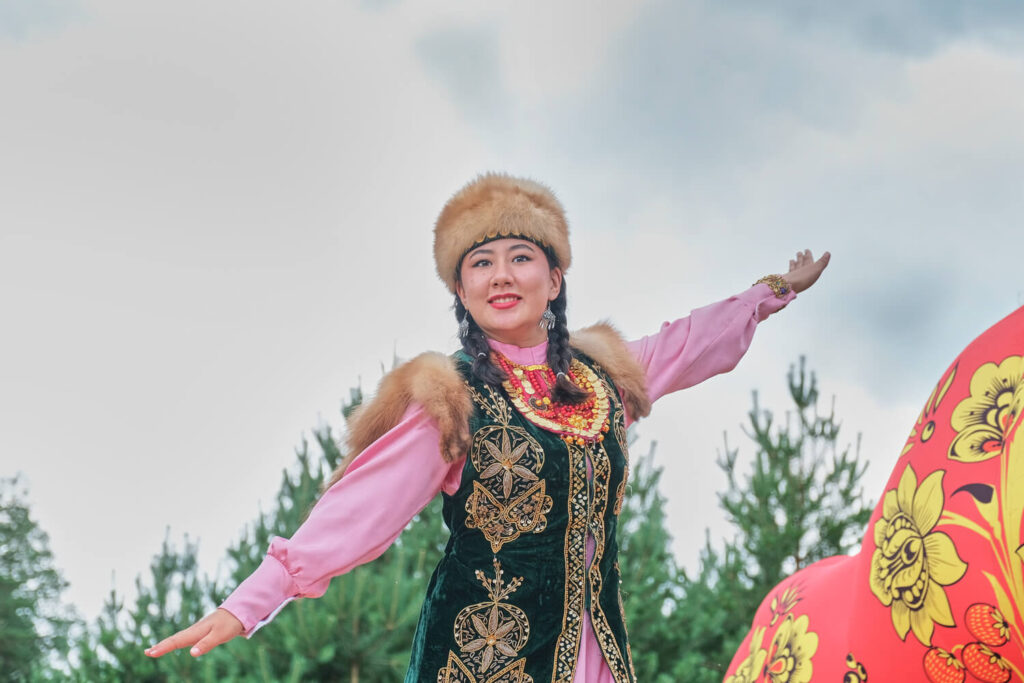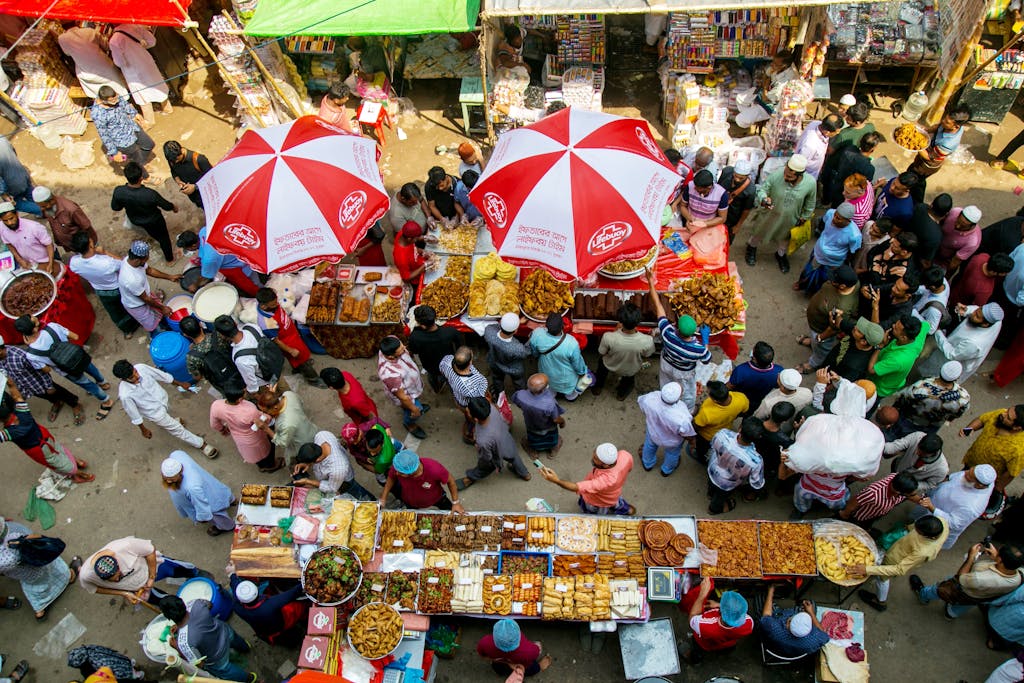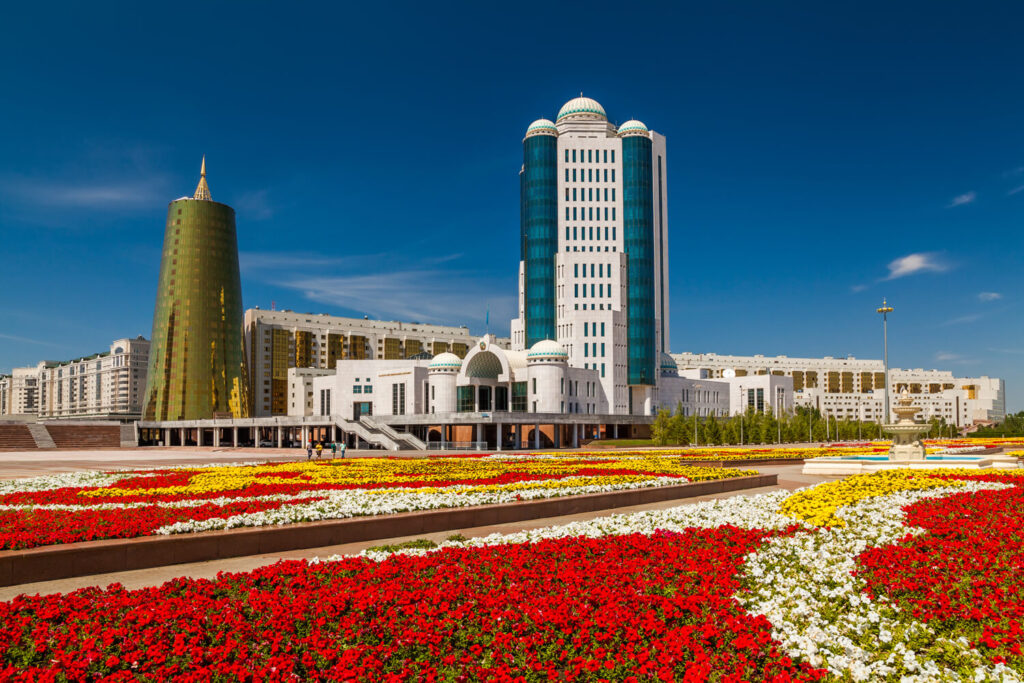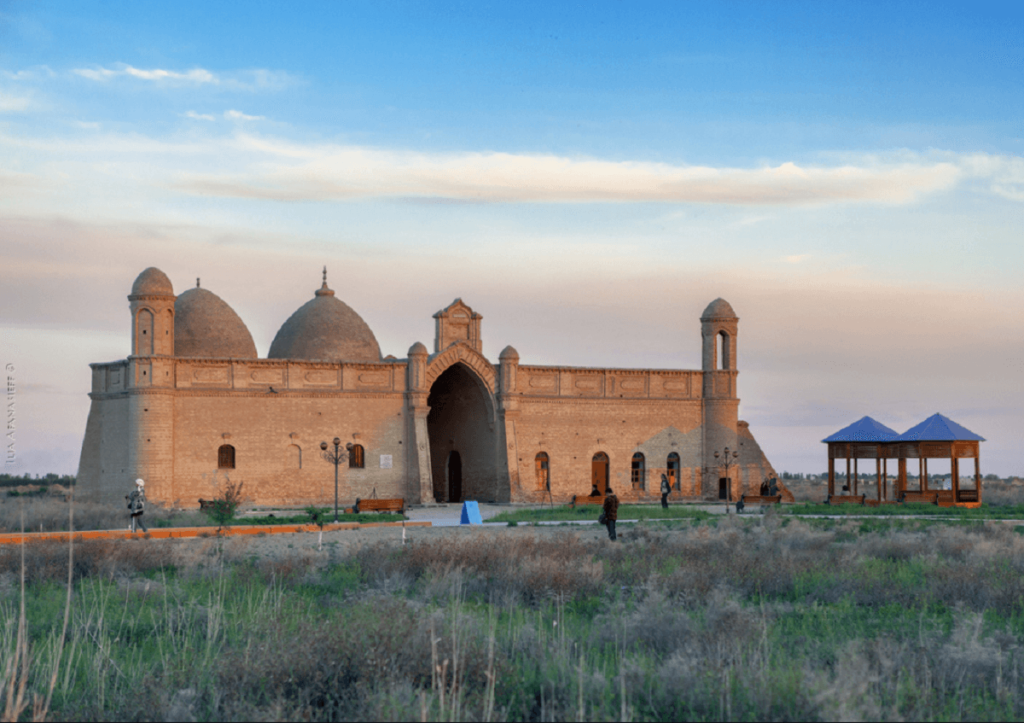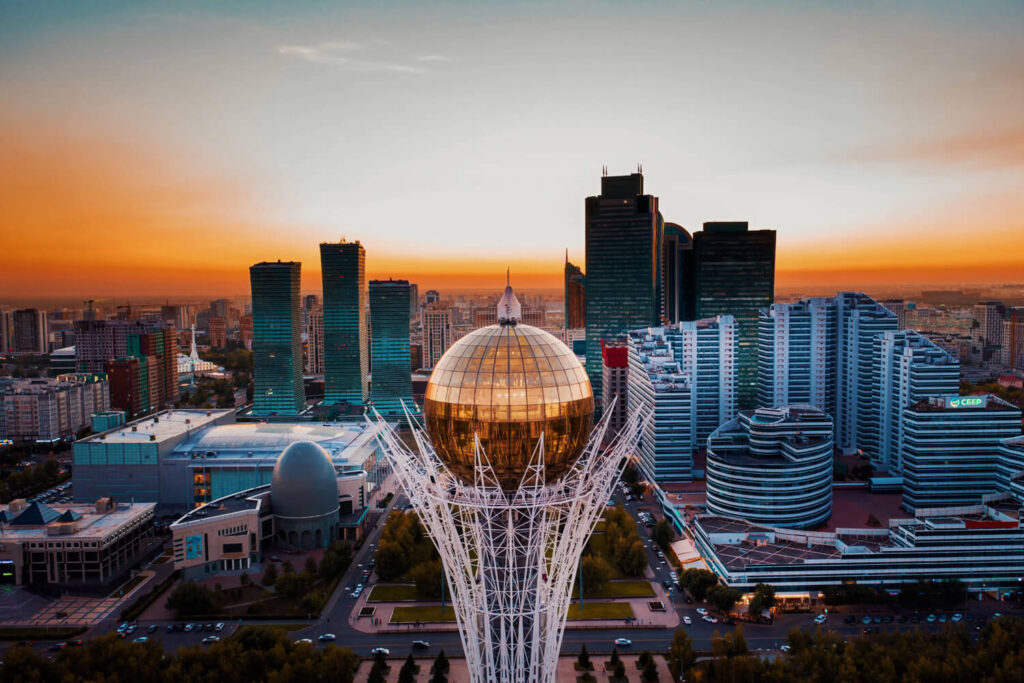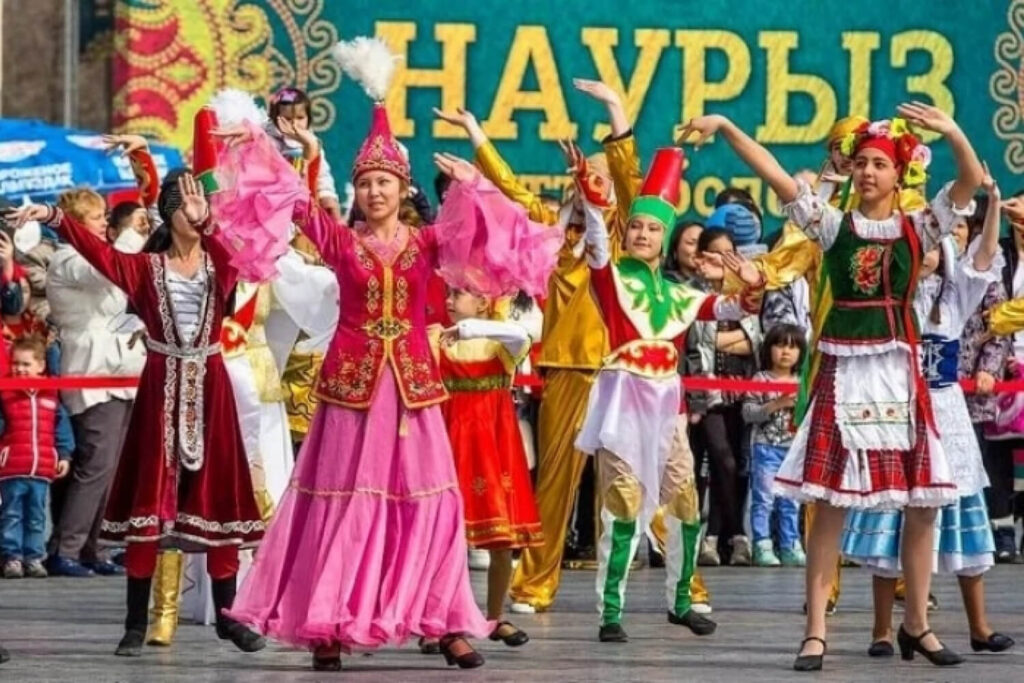Kazakhstan traditional dress female : Kazakhstan’s traditional female dress, which is commonly worn, reflects the country’s rich cultural heritage, nomadic lifestyle and the artistry of its people.
The white turban, or kimeshek, is a big headdress worn by Kazakh women after the birth of their first child, signifying a change in their life stage.
It’s known for its beautifully multi colored vibrant colors, intricate embroidery and elegant yet practical design for the nomadic life.
Kazakhstan traditional dress
Kazakh clothing is a reflection of the country’s rich cultural heritage and its people’s way of life on the steppe. Traditional Kazakh clothing, also known as women’s clothing or kazakh national clothes, is simple, practical and beautiful.
The clothing is made from natural materials like wool, cotton and fur which provides protection from the harsh climate, especially during cold weather . Kazakh traditional clothing is not only a means of self expression but also an indicator of social status, age and marital status.
The use of gold embroidery, precious stones, imported materials and luxurious clothing in traditional Kazakh clothing adds to its beauty and significance.
The Dress (Көйлек – Koylek): Kazakh Traditional Clothing
- Design: Kazakhstan traditional dresses are long, till the ankles, and are often made from fine materials like silk, velvet or cotton.
- Color: Bright colors like red, blue, green and yellow are used, often symbolizing vitality, joy and festivity. Young girls wore red till the age of 30, highlighting the cultural belief regarding age and the appropriateness of clothing colors.
- Decoration: Dresses are decorated with intricate embroidery featuring patterns inspired by nature, like flowers, leaves or geometric designs.
Outerwear: Fur Coats
- Kamzol: A sleeveless, fitted overcoat worn over the dress, often made from velvet or heavy fabrics. It’s richly decorated with embroidery, beads or gold thread, emphasizing elegance.
- Shapan: A long, loose robe that is also sometimes worn for extra warmth. It’s decorated with detailed patterns and can be lined with fur for winter. Shapan robes come in various thicknesses, colors and materials, reflecting the wearer’s status and social standing.
Discover Kazakhstan
Accessories: Eagle Owl Feathers
- Headwear* Saukele: A traditional bridal headdress, tall and conical, signifying the bride’s transition to a new life. It’s decorated with silver, pearls, beads and feathers.
- Takiya: A small skullcap worn daily, often embroidered and sometimes with small decorations.
- Kimeshek: A headscarf worn by married women, white to symbolize purity and modesty.
- Zhaulyk: Traditionally worn by older women, this headpiece is a symbol of their status and matriarchal role in Kazakh culture.
- Jewelry:
- Jewelry is an essential part of the traditional dress, highlighting wealth and beauty. Common pieces include:
- Bracelets (Bilezik): Wide and intricate, often made of silver.
- Necklaces and Pendants: Symbolic designs, sometimes with protective charms.
- Earrings: Long and dangling, showcasing detailed craftsmanship.
- Rings (Saqina): Often worn on multiple fingers, with bold and elaborate designs.
Footwear
- Ayakkab: Traditional leather boots with pointed toes and sometimes low heels. They are practical for a nomadic lifestyle, comfortable and durable. Traditional women’s shoes are often decorated with small patterned plaques, adding to the vibrant colors and intricate embroidery.
- Stockings: Worn under the boots, often made from wool for warmth in colder climates.
Fabrics and Patterns: Gold Embroidery
- Fabrics are velvet, silk, wool and cotton, chosen for the climate and aesthetic appeal. Less affluent Kazakhs wore clothing made from easily accessible materials like furs, leather and homemade wool, while the nobility used imported fabrics.
- Patterns are inspired by Kazakh ornaments and symbols, like the “koshkar-muiz” (ram’s horns) motif, symbolizing strength and prosperity.
Kazakh Traditional Clothing Designs
Traditional Kazakh clothing designs are influenced by the country’s nomadic lifestyle and its cultural heritage. The clothing is designed to be functional and comfortable, often using more easily accessible materials with a focus on protection from the elements.
Kazakh men wear a shapan robe, which is a long, loose-fitting garment often decorated with gold embroidery and plant ornaments. Kazakh women wore a long dress or shirt, pants, hat and vest or robe, often made from woolen fabrics and decorated with embroidery and appliqué.
The use of fox fur coats, blue and black dresses, and eagle owl feathers in traditional Kazakh clothing makes it unique and culturally significant.Regional Variations of Traditional Kazakh
Occasions for Wearing Kazakhstan Traditional Dress
Traditional folk costumes, which are worn daily, are worn during special occasions such as:
- Weddings: Brides wear elaborate versions of the traditional dress, including the saukele headdress. Men often wear a ceremonial shapan, which is a significant garment decorated with gold embroidery and dark colors.
- Festivals and Celebrations: During Nauryz (Kazakh New Year) and other cultural festivities, women wear traditional attire.
- Cultural Performances: Traditional dancers and performers wear traditional costumes.
Discover Kazakhstan
Modern Influence
While the traditional dress is rooted in heritage, young women and modern designers have incorporated these elements into contemporary fashion.
Today, traditional motifs and designs are integrated into modern clothing, blending history and modernity.
Modern designers often use various fabrics including imported silks and velvets in contemporary Kazakh clothing, combining traditional elements with luxurious materials.
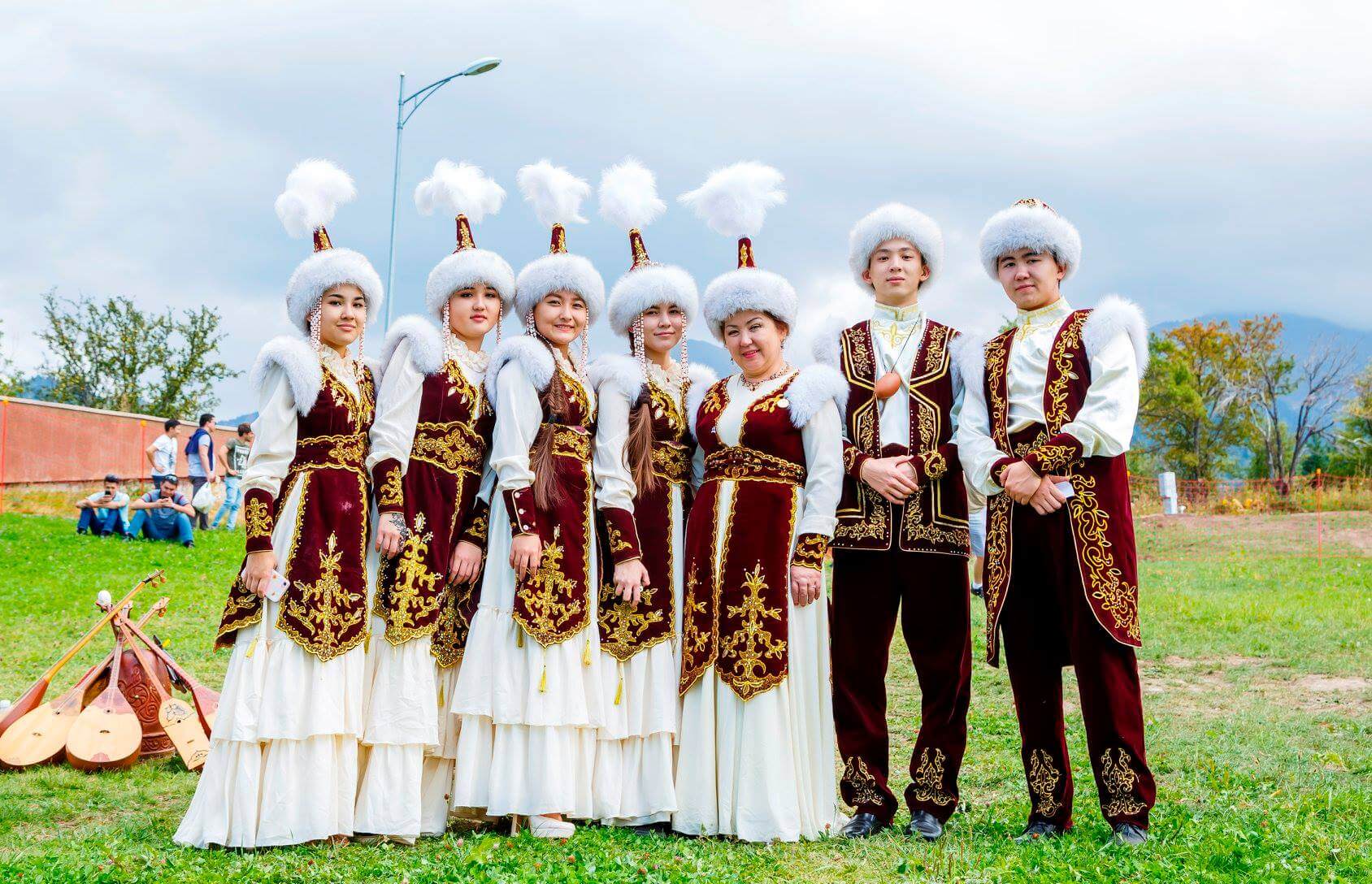
Kazakhstan traditional dress female is a reflection of the nation’s culture, combining practicality with artistic expression and more luxurious clothing .
It remains a source of pride and identity for Kazakh women, preserving the essence of their heritage.
Conclusion on Kazakh National and Traditional Heritage
Kazakh national and traditional clothing, often made from sheep valuable wool, is a colorful representation of the country’s rich cultural heritage and its people’s resilience.
From the gold embroidery to the use of natural materials like wool and fur, every part of traditional Kazakhstan traditional dress tells a story of the nation’s history and its nomadic lifestyle.
The regional variations and modern adaptations of these traditional garments, along with the inclusion of light boots, show the dynamism of Kazakh culture.
As contemporary Kazakhs, who wore light boots in the past, wear and celebrate these traditional clothes, they keep a connection to the past while moving forward.

